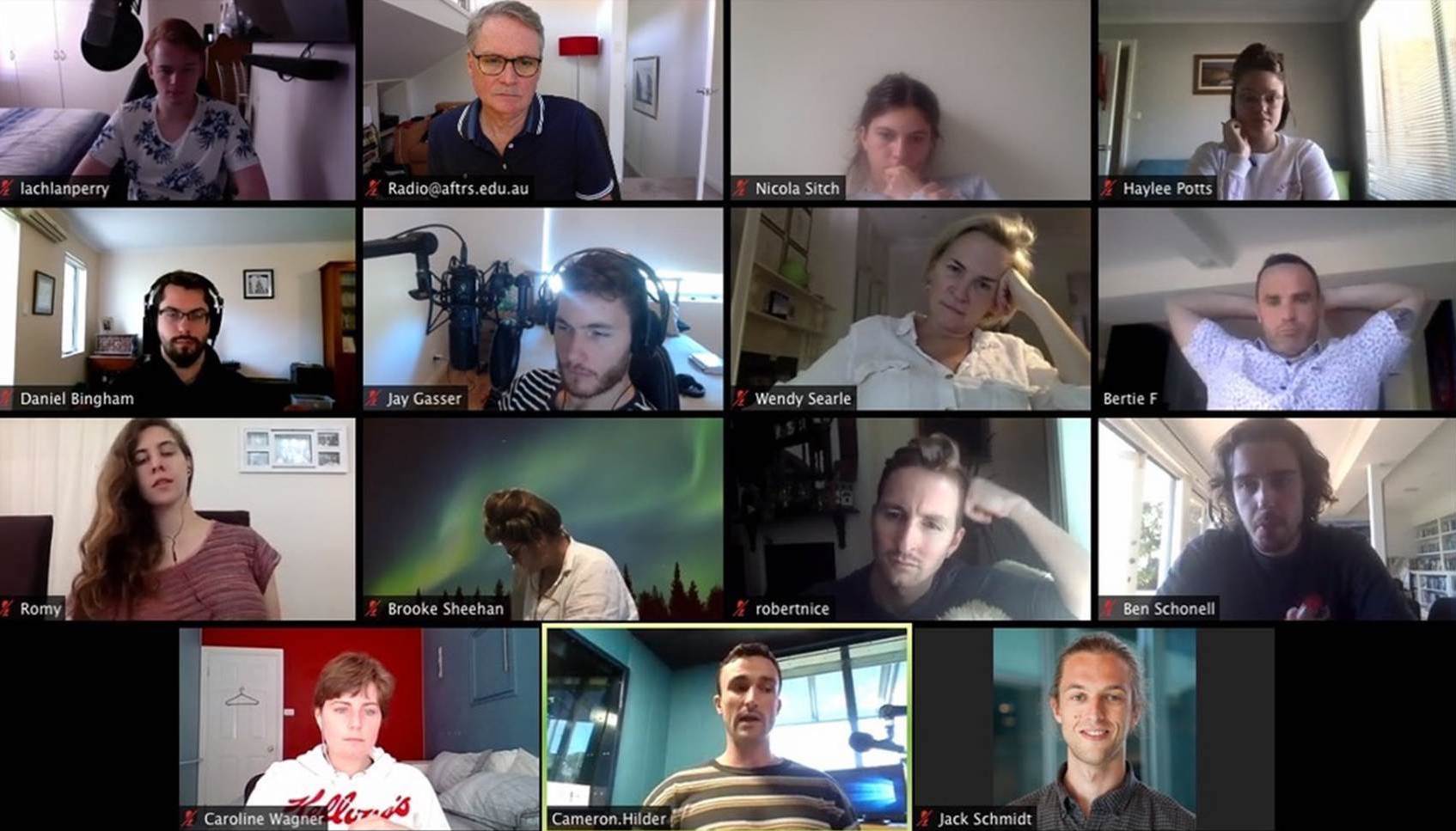AFTRS students tour regional radio stations via Zoom amid COVID-19

The impact of the coronavirus pandemic is being felt on the education sector, with travel restrictions forcing students from the AFTRS Graduate Diploma of Radio to stay home.
Usually the class would be touring around regional radio stations around this time of year, but this year regional radio had to come to them, via Zoom.
Thanks to the goodwill of radio practitioners around the country, students from AFTRS got a virtual first-hand taste of what it’s like to live and work in radio outside Australia’s capital cities.
The AFTRS Regional Radio Around Australia Zoom Tour was led by senior lecturer Tony Rasmussen, and took in places including Hobart, Gippsland, the NSW Central Coast, Sunshine Coast, Townsville, Darwin, Perth, the Great Southern region of WA, and Berri in South Australia.
Some of the presenters that joined the tour included AFTRS alumni Sean Brown who presents Mornings on Hit100.9 in Hobart, and his former co-host Mariam Belle. The pair spoke about the importance of community and holding onto advice from content directors.
ACE Radio Network’s Ryan Khay walked students through the Gippsland studios, and told them; “Building clocks is a science, and content is still very much king. Make your content unique to your audience, and never forget the importance of storytelling.”
Grant Broadcasters regional CD for Qld and the NT Ryan Rathbone and Captial Radio’s 6iX PD Brad Pottinger told students to keep building contacts throughout the industry, and stressed the importance of sending demos.
Announces in their first regional gigs including Cam Hilder in Townsville joined the tour, as did more experienced heads like Star 104.5 program director Shayne Sinclair.
AFTRS students also got a peek at what its like being in regional radio as a producer, with insights from Hit100.9 Breakfast’s Grace Garde and ABC Darwin’s Jack Schmidt.
The experience also taught students the importance of getting out and connecting directly with local audiences, learning what interests them, and of the hugely important role that radio plays in emergency broadcasting – especially in the regions.




